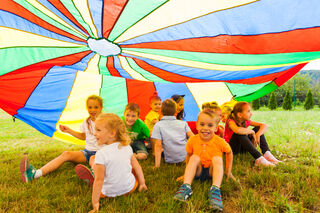Depression
Lighting the Darkness of Suffering
A new U.N. World Day for prevention and healing.
Posted November 16, 2022 Reviewed by Davia Sills
Key points
- To fully promote flourishing, we also need to be attentive to suffering. Suffering is distinct from depression, and both require attention.
- We also need to address the causes of suffering, including childhood sexual abuse.
- The U.N. has announced a new World Day for Childhood Sexual Abuse Prevention and Healing.
The promotion of flourishing requires not only active efforts to improve happiness, meaning, character, and other aspects of well-being but also healing from past hurts.
Suffering
We have all had experiences that resulted in physical or emotional pain, and many of these left lasting scars, whether physical, mental, or spiritual. Some of these experiences result in severe trauma and intense suffering. We need to take such suffering seriously. We need to try to prevent it and foster healing, and if possible even growth, amidst it.
Some of our research at the Human Flourishing Program at Harvard has focused on the topic of suffering. We have published a review concerning the concept of suffering, how we might measure it, and what the future directions in empirical research on suffering might be. We have considered how depression is empirically distinct from suffering. While depression always constitutes some form of suffering, many who suffer, and suffer intensely, are not clinically depressed. There are forms of suffering, such as physical suffering or existential suffering, or social suffering, that can be quite different from depression.
Conversely, some who are depressed, while they say there are suffering to some degree, do not say they are suffering severely. Their challenges with depression are real, but the degree of suffering varies. Of course, suffering may cause depression or give rise to anxiety and vice versa, but depression and suffering are nevertheless conceptually and empirically distinct. Mental health care has become better and better at treating depression, but we arguably need to also attend to suffering both within health care and within society more broadly.

Child Sexual Abuse and Prevention
We also need to attend to the causes of suffering. One particular cause of suffering to which the Human Flourishing Program has devoted considerable effort is addressing prevention and healing from childhood sexual abuse. Last year we organized a symposium on “Faith and Flourishing: Strategies for Preventing and Healing Child Sexual Abuse.” The symposium had over 1,900 registrants, Nobel Peace Laureate Denis Mukwege as keynote speaker, a blessing from Pope Francis, speakers from countries all over the globe and across numerous religious traditions, and testimony from abuse survivors. The event also served as a catalyst for an initiative to establish a World Day for the Prevention of and Healing from Child Sexual Exploitation, Abuse, and Violence.
We are very happy to announce that on November 7, 2022, the United Nations General Assembly approved a resolution establishing November 18 as a World Day to raise awareness of the sexual exploitation and abuse of children. The resolution was due in no small part to the efforts of our Human Flourishing Program Research Associate, Dr. Jennifer Wortham, who chaired our symposium and worked tirelessly to build the coalition needed to establish the World Day. We very much hope that each year, World Day will draw attention to this important issue so that more effort from all parts of society—schools, families, workplaces, governments, and religious communities—will go toward prevention and toward bringing perpetrators to justice and creating pathways to healing.
Moral Injury and Healing
In the years ahead, we plan to continue these efforts at the prevention and healing of sexual abuse and also of other forms of suffering. The reality of abuse can have profound physical, psychological, spiritual, and social effects on victims. Each of these needs to be addressed. Such abuse and other forms of harm and wrongdoing can moreover also be disruptive to a person’s sense of right and wrong, good and evil, or their own or others’ value and worth. When such threats to one’s moral outlook are sufficiently severe as to cause persistent distress, it arguably becomes proper to speak of “moral injury.” This kind of injury can occur to the victims of abuse and wrongdoing but also to its perpetrators or witnesses.
We do not at present seem to pay enough attention to these moral dimensions of injury and distress. The notion of moral injury in the contemporary research literature arose first in the context of military veterans experiencing distress over having committed acts or having witnessed acts that they considered wrong and that disrupted their understanding of good and evil or their sense of their own goodness or perhaps that of once-trusted leaders. The experience of such veterans manifested itself in ways distinct from post-traumatic stress disorder. It had a powerful moral dimension—feelings of guilt, shame, anger, or betrayal—which, if left unaddressed, could haunt veterans for years.
This experience of moral injury, however, is not confined to witnesses or perpetrators but is relevant to victims as well. It is part of what must be addressed in thinking about healing from abuse or other harm. We have recently launched a new initiative at the Human Flourishing Program to try to contribute to the existing work on the measurement and study of, and treatment approaches for, such moral injury. It is important we try to address suffering on all levels: prevention, awareness, treatment, and healing—not only in its physical, mental, and social dimensions but in its spiritual and moral dimensions as well. Only then will we be able to more adequately promote fuller human flourishing.
While some people inevitably suffer more than others, we are ultimately all in this life together. There is a communal dimension to suffering: Because we are social beings, we often feel heartfelt sorrow over the suffering of those around us and over the suffering that seems embedded in our fallen world as it is. We must work together to address suffering and its causes. We must work together to help one another through suffering and to ponder the meaning of our suffering and how we might grow, and what actions and responses our suffering might point us toward.
References
VanderWeele, T.J. (2019). Suffering and response: directions in empirical research. Social Science and Medicine, 224:58-66.
Cowden, R.G., Węziak-Białowolska, D., McNeely, E., and VanderWeele, T.J. (2022). Are depression and suffering distinct? An empirical analysis. Frontiers in Psychology, 13:970466.
Cowden, R.G., Rueger, S.Y., Davis, E.B., Counted, V., Kent, B.V., Chen, Y., VanderWeele, T.J., Rim, M., Lemke, A.W., Glowiak, K.J., and Worthington, E.L. (2021). Suffering, mental health, and psychological well-being during the COVID-19 pandemic: a longitudinal study of U.S. adults with chronic health conditions. Wellbeing, Space and Society, 2:100048.
Related Articles
Preventing and Healing Child Abuse in Religious Communities. Psychology Today. Human Flourishing Blog. March 2021.
Balancing Negative News Reporting: Promoting the Good. Psychology Today. Human Flourishing Blog. June 2020.


